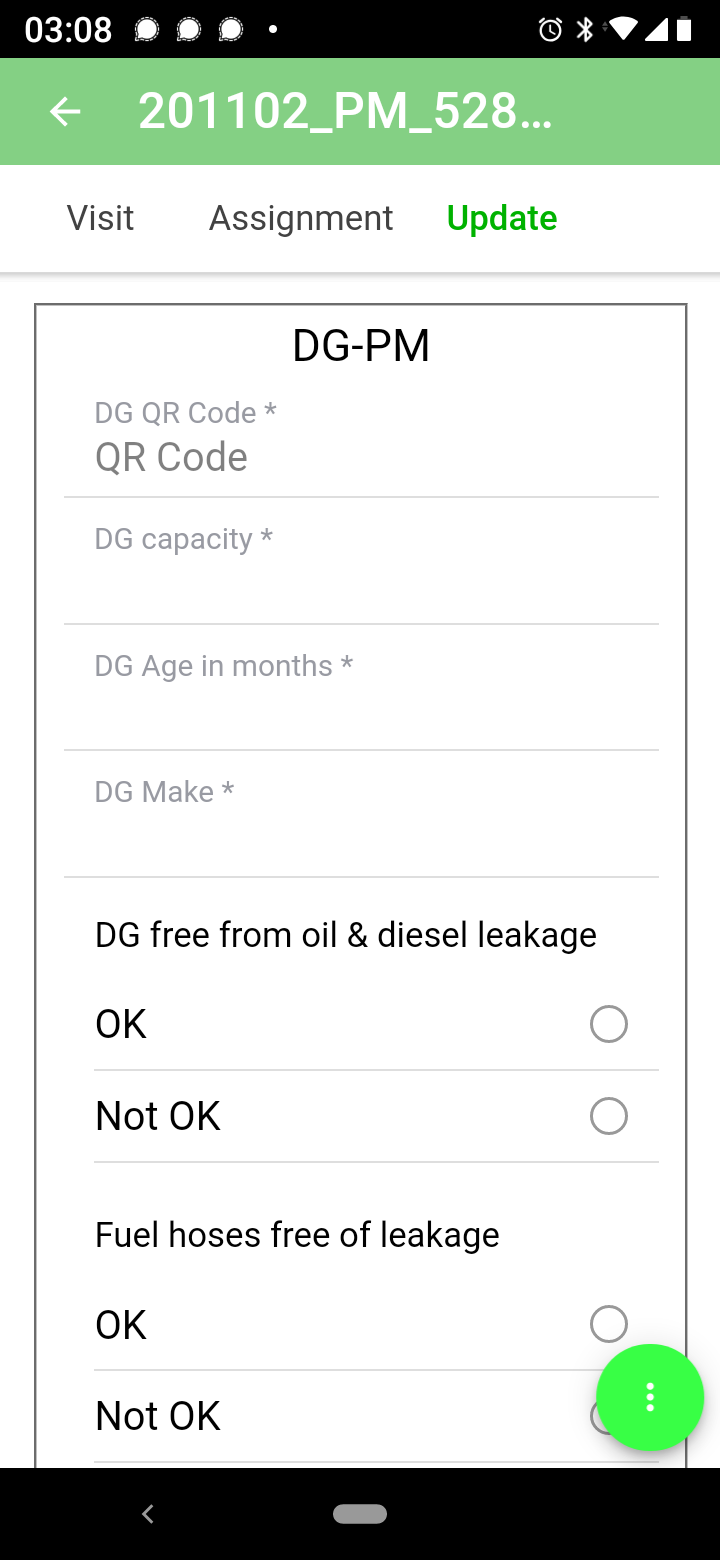More than customer retention, support is a major way to gain new customers as well A case for Customer Service CRM softwareWith 2021 behind us and having learnt from our experience, we can safely say that customer support is what keeps a company afloat. Sales to new customers is expensive, time consuming. Customer support is cheaper and the effects are longer lasting. Support helps retain customers. Support helps spread the word among other prospective customers. Support is also a great source of ongoing revenue. The years 2020-2021 were years for our Customer Service CRM Software to come into its own. Ad hoc tickets, scheduled maintenance, AMC and Warranty coverage, spares, logistics. For field service as well as for customer service operations managed out of service centers. And all this at scale- from a team size of 10 to hundreds. Very customizable. And very very affordable. Who is the Saleswah Customer Service CRM software for?Saleswah Customer Service CRM software will help you improve customer satisfaction. Field service CRM softwareIf you have a medium to large sized field support team that goes to customer locatto attendnding to complaints on installed equipment- high value capital goods (think DG sets, utilities, compressors, chillers, petrol dispensers) or even white goods like AC, then Saleswah service CRM software will help run your service operations. Service Center CRM softwareIf you have one or more service centers around the country and your customers bring in or send in products for repair, the customer service CRM software helps too. Think laptops, mobile phones, printers, hearing aids, even cars or even some white goods. What sets it apart– A great new mobile app- helping deliver a full fledged service experience at customer site. Build your own: Every Saleswah customer sees a totally different CRM – No need for consultants to implement. And there is no need to budget for months of even weeks to implement and adopt. A typical Saleswah customer service CRM software implementation takes just a few days and rarely requires technical support or coding.
– Any size of operation- hundreds to tens of thousands, any types of products. Browse a particularly complex implementation case study. What did we do for the Sales CRM?– As with the customer service CRM software, the accent was on mobility. The mobile salesman will now really like the interface. We also added integrations with Google Workspace (sheets, contact, calendar, gmail), Office 365, QuickBooks Online and added the ability to get leads directly into your Saleswah CRM account from IndiaMart. – As in the Service CRM, major modules are now user level customizable- add your own fields to Account, Contact and Deals. – Capture leads from your website- embed a lead capture form on your website. … and, that’s not all. Across the sales CRM and customer service CRM software, we have revamped our reporting tool and made it possible to define your own reports. And export the results to csv or Google Sheets. We now have added notifications across most critical actions- so, whether it is a new lead, a task that got assigned to you or an appointment that is due in 10 minutes, Saleswah will prompt you on your web browser and on the mobile. Already have Saleswah? Write us and tell us what you liked or even what you didn’t about what we did last year. If you haven’t experienced Saleswah yet, go and sign up for a trial- here. |
Category: Service CRM
Prevalent frauds in field service management -1
I will write a few stories – based on personal and professional experience- where I see how fraudulent practices impact the companies providing services and/ or the consumer.
All cases are real and from my first hand experience. Today is the first, the case of the air-purifier field service management.
A few days back we wanted our room air purifiers serviced. It is one of the most well known white goods companies. We called their call center, a service ticket was logged and the technician was assigned to our case.
He landed up at about the appointed hour, did a thorough job with both ( we have two) and then asked for payment.
I paid in cash- he charged me for 2 services, got me to sign off on the “FSR” – which also doubled up as the receipt, and when he was tearing off the top page I saw what was odd.
Except for my signature and date, there was no other impression on the “self-carbon” copy- meant for submission back at his office.
See the possibilities.
He can fudge my rating; in this case, there was no need to, because I had rated him well; but, it is always a possibility.
He can misreport the time of arrival and departure.
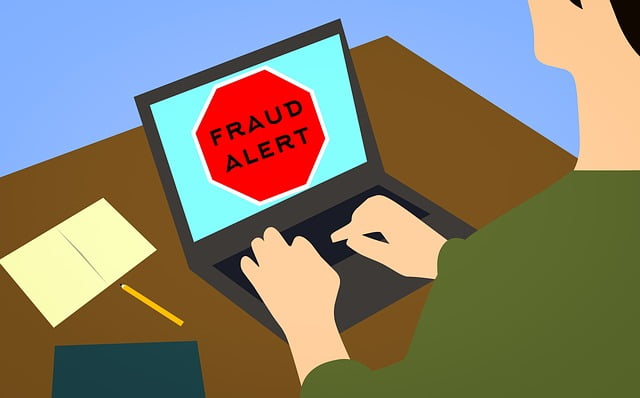
He can claim that he serviced only one air purifier rather than 2. And pocket the charges of 1 service.
He can claim that he used some consumables- non-chargeable to the consumer, but obviously costing his company something.
Prevalent but preventable
Now, shameless plug for Saleswah Service CRM- field service management software.
If this company was using Saleswah CRM mobile enabled field service management software, this would not have happened.
- I would sign on the mobile screen, after I rate him- also on the phone. So, no chance of a fudged rating. Oh, and if your company policy demands that he takes a picture of the client, or the equipment, he can- and the pictures will be sent along with location tags, address etc to your database.
- The mobile app will record the start and end time and location of the service call/ visit. And the location.
- The receipt can be generated right from the app; configured by the type and quantity of the service availed. No more revenue loss for the company.
- You can specify in your service policy that all spares or consumables being used must be entered in the mobile app and and have that implemented/ enforced.
Sign up for a no obligations, unlimited, free trial.
Not just sales! Saleswah for field service management
Saleswah CRM announces the most comprehensive field service management product
Why does a comprehensive service management product need to ride on a sales management platform? To illustrate, let me tell you a story.
Two insurance companies (A and B) went to war over customer mindshare. To beat the rather staid promise of A to take care of your lifelong needs, the company B came up with the lot more colourful “cradle to grave” promise.
That worked well, so well, that the company A’s ad agency was driven to desperation to come up with a suitable reply. At long last, they did! Their new slogan, was: “From inception to resurrection”!!!
Okay, so I made it up- or relayed an old joke. But, there are many reasons, why “inception to resurrection” might just be the better description of what the actual customer lifecycle is.
When the product is just a need, nebulous in the customer’s mind, it is at the inception stage. We work with the customer to give it shape, focus him on the solution we are offering and then sale happens! In an enterprise, you get a PO which you send to your order processing who make the shipment.
So far, as you can tell, this is the phase Saleswah helped you manage.
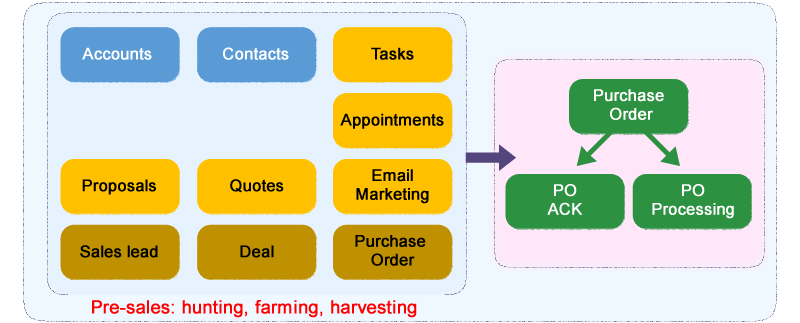
In enterprise sales, won business- does not necessarily lead to another one immediately. So, you may have installed bases which appear active but there may be others which are not.
They might wake up months or even years later, or they might not.
Worse, your sales and aftersales may not talk. So, service may not know all the commitments that sales made to get the business. On the other hand, sales may allow competition to come in during the long hibernation period.
Sales operations and service management on the same platform
For true CRM, the whole organization needs to be involved in managing the customer expectations and relationship. CRM is not just a sales management tool, it is a tool for managing customer relationship as related to the product and service that you are selling.
Sales helps get you in; but service keep you there.
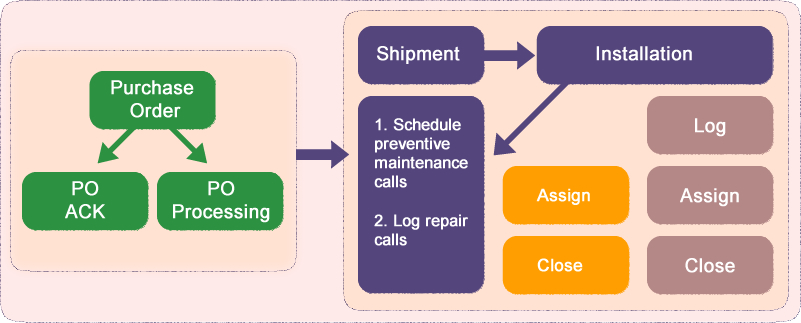
Comprehensive service management: from where sales ends
We did toy with the thought of having a standalone service management product. To be honest, you can use the Saleswah CRM only for Sales or even only as a service CRM. But, the real power of the software comes through in managing your entire sales to support continuum.
Because, you see, many customer relations could do with a rebirth. And, rather than cradle to grave- which implies a closure, resurrection is what you aim for. Having your sales and service in the same platform helps you do that.
Sign-up for a free trial and turbo-charge your customer satisfaction.
Service CRM nurtures your installed base, grows your revenue, and creates customer delight
Why Service CRM
Most people agree that is takes 5 to ten times as much to acquire a new customer than to keep an existing one happy. So, it’s natural to want to nurture the installed base – folks who have purchased from you in the past.
As a CRM strategy, nurturing the installed base takes different paths.
Most models focus on logging events and interactions – meetings, proposals, quotations, orders (won/ lost). Then you have history and you can create your own interaction plan. Even have the system trigger you for pre-determined actions.
The other approach is to approach it from a service CRM mindset. Keep proper track of what you have sold, attend service calls, make him happy that he bought from you.
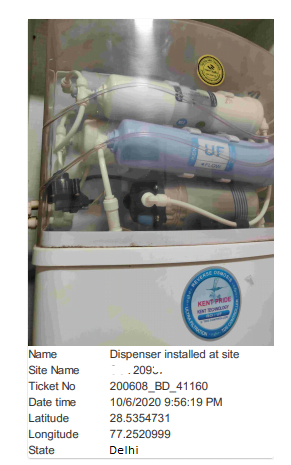
And, yes: you can generate revenue from the service operations as well. Have the service CRM help in reminding you to send quotations for contract renewals. Send out spares quotes.
These approaches need not be “either-or”. You can do both.
You can’t do service if you don’t have sales- but, service is just another way of selling. Service CRM is not just a product – it is the way you think.
Sign up now and experience Saleswah CRM. It’s not just sales.
Why is spare parts management for maintenance important
We went live with one of the most comprehensive implementations of spare parts management in a service CRM recently.
In this post, I will explain the standard workflows that exist in the system. This will help you understand not only how versatile the system is but also, what it does not currently do. Please leave your comments below if you see any opportunities for us to improve. As you know, you can always register for a free trial and check out – not just the spares management module but the entire sales and service CRM.
Guidelines for releasing spare parts, movement and use:
Part number and serial number
Spare parts management for maintenance is really important in any service organization. All equipment may require spare parts during maintenance. All spare items have a part no. They would also have a description. The same part might be used to repair different equipment. Thus, you can optionally map the same part to one or many pieces of equipment. Needless to say, a single piece of equipment may require multiple spare parts.
Parts may or may not have a serial no. Normally you would have serial numbers for high value components or modules used as spares. But, Saleswah handles both the scenarios equally well. Where parts have serial numbers and where parts do not have serial numbers. It is admin configurable so you can define a category of parts as needing serial numbers and Saleswah would handle it.
Who does this tagging help? Obviously, it makes the job of the frontline technician a lot easier.
Who plays an important role in spare parts management ?
An important role is played in spare parts management for maintenance by all front line executives and managers. They can indent for spares and use them to solve service tickets. Other than them, there are 2 roles in the system who can “load the system” with spare stock.
1. Admin
2. Spares warehouse in-charge
Admin/ Warehouse IC also needs to create the spare models and link them to one or more equipment models.
Any “line executive or manager” in a service role (technician, service exec, or service manager) can indent for spares. Any supervisor can approve parts and ship them. Approvals and shipments can be partial or full. All shipments are made directly to the indenter.
Activities related to spares
There are 2 kinds of indents: those specifically for closing a ticket and those for stocking. Any line executive or manager in the service role can indent for spares and any of his direct managers can approve.
The ticket related indents are treated as urgent by the system and are auto-escalated all the way up if needed to the person who has stock.
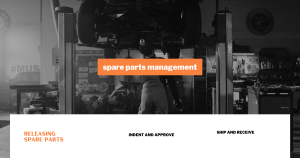
The non-ticket related indents- those which are created to stock up locally on frequently used spares- go through the entire approval hierarchy. The idea is that:
- every ticket requires at least one level of approval; so at least your immediate manager must approve.
- if your manager does not approve- it can be that he does not have stock- he can “escalate” the indent to his manager.
- Whoever approved an indent- for part or full items, must ship.
- All indents are visible to everyone up the hierarchy; so, a higher manager has the choice to cut through the layers and directly approve an indent.
Ship and receive: anyone who approves, must ship. It of course may be that while approving the indent you do not have parts; so, you can ship only when you get the parts. You of course need to indent for parts to get them.

If you do not have parts to ship in response to an indent, you can escalate the indent to your manager.
You can ship partially or in full.
The cycle is completed when the indenter receives the parts.
Spare stock inventory and usage: When the parts are received by the indenter, he adds them to his inventory- which is his personal stock of spares. Spares are used in repair and maintenance – always related to a ticket.
So, irrespective of how you received the parts in your stock, you can only use them to solve a ticket.
You have full visibility of the entire spares inventory with you and in your direct reporting chain of service users. You also have visibility into the usages and interesting reports can be generated regarding spares usages for tickets, regions, history of spares used by equipment and by user. This helps you maintain control over spares used and draw conclusions over the maintainability of equipment.
The complete CRM vision behind service CRM development
When we built the service CRM– we had some very straightforward goals. Some have been achieved, some will be achieved down the road.
Let me do a quick roadmap sharing and also list the design objectives.
Continue reading “The complete CRM vision behind service CRM development”
Who is Saleswah for?
Customers we serve (and benefit)
Years after we started our journey – our focus continues to be those companies who are selling products and services to other businesses.
CRM tends to be a bit of an omnibus term. Here’s how we explain to customers when we talk. In our view, CRM is a software that helps manage- schedule, track and facilitate all customer facing processes. The way I see it, the difference between ERP and CRM is that ERP manages the processes “inside your gates”. CRM manages “outside the gates” processes.
So, within this broad ambit, there are sales and service processes- both.
Let’s discuss them one by one and position Saleswah appropriately.
Sales CRM
If you are scouting for a Sales CRM, first ask two important questions to yourself:
- Who is my customer?
- What is my selling process?
Am I selling to individuals or am I selling to companies? Normally most companies do either one or the other. Your product or service will typically determine your choice of customers.
There are exceptions. For instance, you may be a soft-drinks company and have 2 target segments. Individuals who you target through your retail play and corporates like clubs, airlines, hotels who you sign up with for exclusive deals. While the latter is a B2B sales process, the former is B2C. Saleswah does not cater to B2C process at all.
A B2B sales process will need salesmen with feet on street. There will be territories, hierarchies, target setting and periodic reviews of achievements against targets.
A B2B sales process needs profiling of customers- organizations and people who work for them- for they decide on the purchase. The history of interactions, captured over time guides future interactions.
Why Saleswah Sales CRM?
Saleswah Sales CRM helps sell products and services to other businesses. So, all other entities in Saleswah (Contacts, Deals, Tasks, Appointments, Quotations- and even sales targets and achievements) are linked to the Accounts (companies that you sell to). “Account owners”- sales people who are the first line contact for the customer (Account in question) have primary ownership of targets, get rewarded for achievements (deals won) in the accounts, get assigned tasks related to the accounts and so on.
Does the above describe your sales process?
Ask for a demo or Register for a free trial.
Service CRM
If you are looking for a Service CRM, the defining questions are:
- What is my product or service that I need to provide after sales service for?
- What is my post-sales service process?
- Do I provide in customer site or does he bring the product in for service?
There are many products that require no post sales service. Most home furniture, consumables etc require no service. Some products may simply be too inexpensive to require customer service.
But, many products- home appliances and industrial products (and even services- think the cable TV or broadband service) require services to keep going. Many software products which are customer premise installable, require service as well.
Service can be during the warranty period and after.
Service can even include installation support. And, typically warranty coverage kicks in after installation is complete.
There are products that the customer brings in to be serviced to the service station. Think cars or laser printers or laptops.
But there are many products that are only serviced on-site. Home appliances, large machines – Diesel Gensets, Chillers, CNC machines. Some machines are serviced onsite for minor complaints and brought in to the service centre for major work.
Software support is normally always onsite- this is irrespective whether it is an installable software like Tally or cloud based software. Of course, you may end up providing the support on phone, email or internet.
Why Saleswah Service CRM
Saleswah Service CRM helps manage after sales service processes that require:
- Onsite services.
- Tracking warranty and/ or Maintenance contract based service.
- Require field visits tracking.
- Asset management- based on serial numbers.
- Managing out of support cases.
Saleswah can help manage large installed base of equipment- running into tens or even hundreds of thousands. It can easily scale to hundreds of users, many roles and hierarchies and and a complex process of onsite service deliverable.
If you are looking for a easy to use service CRM which can scale to the most complex of requirements,
Field service case study of heavy engineering equipment
 Saleswah CRM is being used for field maintenance of about 35000 Diesel Generator Sets by a customer. Many of these DG sets are located in remote parts of India. They are installed in Telecom Towers for providing backup power.
Saleswah CRM is being used for field maintenance of about 35000 Diesel Generator Sets by a customer. Many of these DG sets are located in remote parts of India. They are installed in Telecom Towers for providing backup power.
A service team of about 30 managers oversee 90 service dealers who employ about 700 service technicians. The service technicians attend to field visits- for repair and preventive maintenance. They are kept supplied with spares. The service is provided under stringent SLA conditions.
See this for more details of the implementation.
The field technicians use the Saleswah CRM mobile app- for service to update the status of the ticket from the field. The service dealers and the managers use the mobile app to stay updated on the open tickets status. They also use the web based application for more involved tasks such as approvals, audits, billing, certification and so on.
After couple of years of use, the customer shared their feedback on what their strategic and operational objectives were and how close they have come to meeting them. We put their feedback in the slide deck that follows.
Have a look at the field service case study.
[slideshare id=87521886&doc=servicecrmprsentationcasestudy-180208134101]

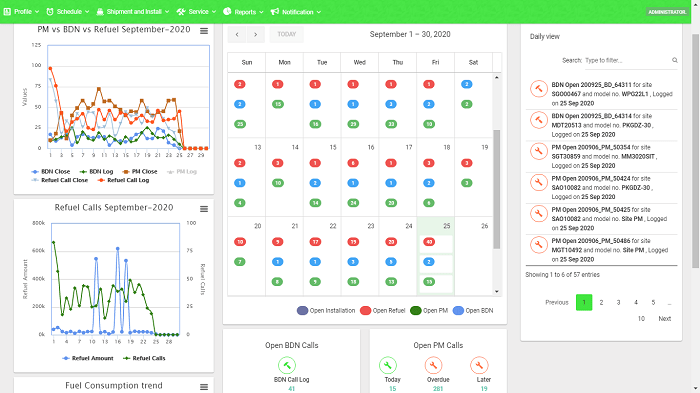
 – Customization by the user: add custom fields to all modules, even create custom forms for all types of tickets and even equipment. Push the form to the mobile app for use by your field support team.
– Customization by the user: add custom fields to all modules, even create custom forms for all types of tickets and even equipment. Push the form to the mobile app for use by your field support team.